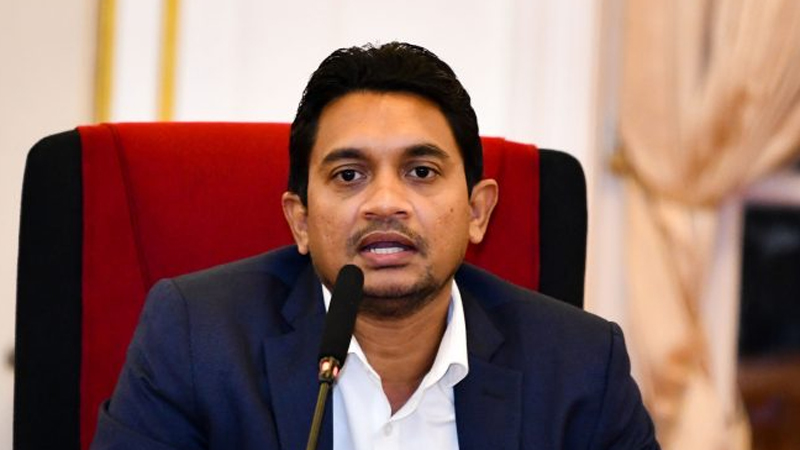The Government is taking proactive measures to reduce the manufacturing cost incurred by companies in running their businesses in the country, said Industries and Entrepreneurship Development Deputy Minister Chathuranga Abeysinghe.
He said the cost of manufacturing had increased tremendously over the past few years which the Government has a good understanding about as it aims at creating a manufacturing economy. The base of it is the cost of energy, transportation and infrastructure which is high compared to other countries.
We have seen these costs coming down since 2023/24.
However, he said it is difficult to grant ad hoc benefits to certain entities to meet their operational cost while the IMF program is under way.
“The decision to shut down operations by Next was not a sudden decision. It was something that has been in the pipeline for the past three years. Next has not been able to keep up as other apparel companies whose margins and productivity have been high,” the Deputy Minister said, adding that there was no specific subsistence program for Next but the company could seek help to sustain its operations.
However, with regard to the discussions with the Next Manufacturing management, he said, there has been ongoing discussion between the Board of Investment (BOI), the Labour Ministry and Next.
High operational cost drove Next Manufacturing, a UK Group to close down its plant at Katunayake last week. Employees have been insisting that their jobs should be restored as the company is not in distress as projected. A senior official of the company speaking on grounds of anonymity, said the management of Next Manufacturing had presented the real state of the operations which is unsustainable due to the cost of production and a feasible compensation arrangement for employees.
The Joint Apparel Association Forum (JAAF), the body representing the apparel industry concerns, said that it had been lobbying continuously about the high operational cost in the country which is not conducive for businesses and investors.
JAAF Secretary General Yohan Lawrence said the issue at the Next Manufacturing plant is isolated to the labour cost at their plant at Katunayake and added that JAAF has continuously lobbied for the operational costs in Sri Lanka – be it electricity, water or labour to be maintained at internationally competitive levels. If you take water, for example, when electricity tariffs went up significantly in August 2023, the National Water Supply and Drainage Board (NWSDB) increased the rates for water citing the increased electricity costs as the reason. While electricity costs have since dropped, the rates for water remain unchanged.
In the construction of new factories, the BOI maintains a negative list that pushes up the costs of construction above what it costs overseas, and protects some of Sri Lanka’s largest companies in the process.
“If Sri Lanka is serious about protecting existing investments and attracting new investments, it is vital that in all these areas we must ensure that we are cost competitive in relation to our competitor countries. This has been the consistent call from JAAF,” Lawrence added.









